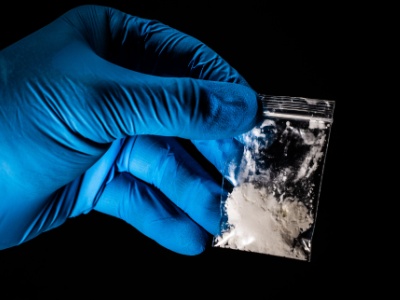When Can a Person Be Charged With Drug Manufacturing in Wisconsin?

Offenses related to controlled substances are serious crimes in Wisconsin. The state has taken a stringent stance against the production and distribution of illegal drugs, and people who are charged with drug manufacturing may face serious penalties if they are convicted. If you have been charged with any offense related to manufacturing, producing, or distributing drugs or possessing drugs with the intent to manufacture or distribute them, you will need to understand your options for defense. In these situations, the guidance of a seasoned attorney can be crucial. A skilled lawyer can help you navigate the complexities of drug laws and provide you with robust legal representation.
What Constitutes Drug Manufacturing in Wisconsin?
In Wisconsin, drug manufacturing refers to the production, cultivation, or preparation of controlled substances. This may include many different types of activities, from growing marijuana to synthesizing chemicals for the creation of synthetic drugs. Manufacturing may also include packaging, repackaging, or labeling drugs for the purpose of selling or distributing them to others. The state's legal framework is designed to curb the supply of illegal drugs, reflecting a broader commitment to public health and safety.
Key Factors in Drug Manufacturing Charges
Several issues may determine what types of drug manufacturing charges may apply under Wisconsin law if a person has been accused of these offenses, including:
-
Type of substance: The legal consequences vary significantly depending on the type of controlled substance involved. For example, charges for manufacturing fentanyl can range from a Class E to a Class C felony, while manufacturing cocaine can range from a Class G to a Class C felony.
-
Quantity: The amount of the substance that was allegedly produced or packaged will play a critical role in determining the severity of the charges. For example, the charge for manufacturing less than 10 grams of fentanyl is a Class E felony, while 10 to 50 grams is a Class D felony, and more than 50 grams is a Class C felony.
-
Possession with intent: Even if there is no evidence that a person engaged in activities that constitute manufacturing controlled substances, possession of drugs or chemicals or materials used to manufacture drugs could lead to charges of possession with intent to manufacture. These charges may result in the same penalties that a person would face if they were convicted of drug manufacturing.
Legal Penalties for Drug Manufacturing
The penalties for drug manufacturing in Wisconsin are severe, reflecting the state's commitment to preventing the distribution of illegal drugs. A felony conviction can lead to significant prison time, hefty fines, and long-term repercussions on your personal and professional life. While the minimum prison sentence for a felony is one year, most drug manufacturing offenses carry longer sentences. For example, a Class E felony has a maximum sentence of 15 years, as well as a maximum fine of $50,000.
Defending Against Drug Manufacturing Charges
Countering accusations of drug manufacturing, drug distribution, or possession with intent to manufacture or distribute requires a nuanced understanding of Wisconsin law. An experienced Milwaukee drug crimes attorney can explore several defense strategies, such as:
-
Challenging the legality or reliability of the evidence against you
-
Questioning whether you intended to manufacture or distribute the substances in question
-
Examining the procedures followed during the arrest and evidence collection to determine whether your rights were violated
Each case is unique, and a tailored defense strategy is crucial in protecting the rights and future of the accused.
Contact a Milwaukee Drug Manufacturing Defense Attorney
Facing drug manufacturing charges in Wisconsin can be a daunting experience, but you do not have to navigate this challenging process alone. At Gimbel, Reilly, Guerin & Brown, LLP, our Milwaukee drug crimes defense lawyers can provide you with comprehensive legal support during your case. We have a deep understanding of Wisconsin's drug laws, and we are committed to defending your rights. Our team will work tirelessly to help you achieve the best possible outcome in your case. Call us today at 414-271-1440 to set up a consultation.







